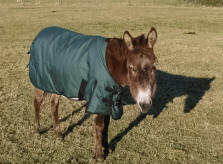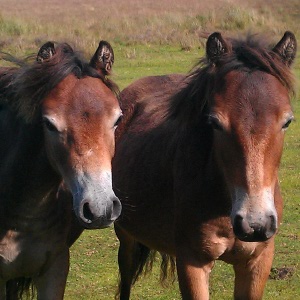How Homeopathy Can Benefit Your Animal

What is Homeopathy?
Homeopathy has been used for thousands of years and is based on the law of similars. I.e. a remedy is selected that will cause the same symptoms as the illness shown. This remedy is then diluted homeopathically and given in minute quantity. So the immune system is stimulated by the same substance and fights the disease or illness. Due to the extreme dilution homeopathy is safe and free from harmful side-effects.
Homeopathy should not be confused with herbal remedies. This is because homeopathic medicine uses not only plants but also mineral and animal sources.
Why Veterinary Homeopathy For Your Animal?
It's a holistic treatment, meaning that it should be used taking into account the whole animal. And a Veterinary Homeopath will carefully match the symptoms with the most appropriate homeopathic medicine.
Homeopathy is normally given in tablet form, but can be in liquid or cream form too. Homeopathy can be used with many types of animals - from pets, livestock to wild/exotic animals!
To give your horse, cat or dog (or other animal) homeopathic medicine orally, it is preferable to give the tablet between meals. This is so the animal has an empty mouth. The tablets are sugar based so will quickly dissolve. They can be given by hand or placed in the mouth but should be handled as little as possible. They should be stored away from direct sunlight in a dry location and away from strong smells. The homeopathic intervention can be reduced or stopped if there is an improvement in the animals condition, (as with any treatment though, do get your Veterinary Surgeon's permission before ceasing or changing treatment!).
The amount required will depend on the animal and the ailment. Your homeopathic veterinary surgeon will be able to advise you. Homeopathy can be used as first aid or to help long-standing ailments. It can also be used in conjunction with conventional medicine if required.
As with all complementary therapies for animals, you should seek the advice of a qualified veterinary surgeon before using the therapy. Additionally, there are over 100 veterinary homeopaths who are members of The British Association of Homeopathic Veterinary Surgeons, which exists to promote homeopathic veterinary medicine. You can also find veterinary homeopaths in many countries around the world.
Various Animal Ailments & Homeopathy Remedies Which Could Help*
*This is general advice only, do remember to contact your Homeopathic Veterinary Surgeon for specific advice on the most appropriate homeopathic approach for your animal!
- Arthritis - Bryonia (see Cough below for detail), Belladonna, Rhus Tox. Belladonna is often used when the joints are hot and swollen, and is thought to act on the nervous system. Rhus Tox can be used alone or combined with Bryonia (also see Cough below). When symptoms are worse in cold, damp weather, Rhus Tox maybe useful - acting on skin, muscles and connective tissues.
- Cough - Bryonia - Animals who respond well to this are usually worse for movement and better for rest, (in cases of cough and arthritis). If a horse has a dry cough Bryonia can be combined with Rhus Tox to provide another useful approach. The Rhus Tox/Bryonia combination is again useful with relieving arthritic symptoms.
- Lung problems -Several different homeopathic preparations can be used - the best one will depend on what the root cause of the lung problem is. Your veterinary surgeon will be able to advise.
- Excitability - Scutellaria - Many animals can experience nervousness when attending a show or a veterinary appointment. Scutellaria is used as a nervous sedative and can be useful in calming highly strung animals together with those who act in an unruly manner.
- Laminitis - Aconite, Belladona (see Arthritis above for detail), Nux Vom - Aconite and Belladona maybe combined to work with acute laminitis, animals often responding well which have a full bounding pulse, plus helping reduce any inflammation. Nux Vom - used with digestive problems, helping to eliminate toxins - thus is useful for laminitis caused by congestion of the digestive system.
- Sarcoids/Warts - Thuja - This is thought to have an anti-bacterial action and is useful for conditions where there is an overgrowth of tissue. It acts mainly on the skin, blood and genito-urinary system - commonly used for warts/sarcoids that are found on or near the genitals, and so maybe helpful for the horse affected in the scrotum and sheath area by warts.
- Strains - Arnica - This is well-known for use with people and animals - and is often used to soothe strains and bumps.
- Thrush - Silicea - Silicea is a tissue salt. Thrush maybe managed with Silicea assisting with healing dead tissue and for horn regrowth. It can be used for chronic conditions caused by infection and primarily works on bone and connective tissue. Sandcracks and Navicular may also be aided by Silicea.
- Travel sickness - Cocculus - is often used to help with motion sickness (car, sea or air sickness). Dogs who suffer from car sickness may find cocculus particularly useful.
More Information On Using Homeopathy To Help Your Animal
- Research - Evaluating complementary therapies for canine osteoarthritis
- Research - Cushing's Disease: A new approach to therapy in Equine and Canine Patients
- Study: Homeopathy in equine medicine reviewed
Would you like information on Veterinary Homeopaths near you for your animal? Please email me at info@taranet.co.uk - I'll be pleased to try and assist, wherever you are in the world!
You can get more information on many complementary therapies for animals here at Taranet. Take a look at the sitemap here for a list.
